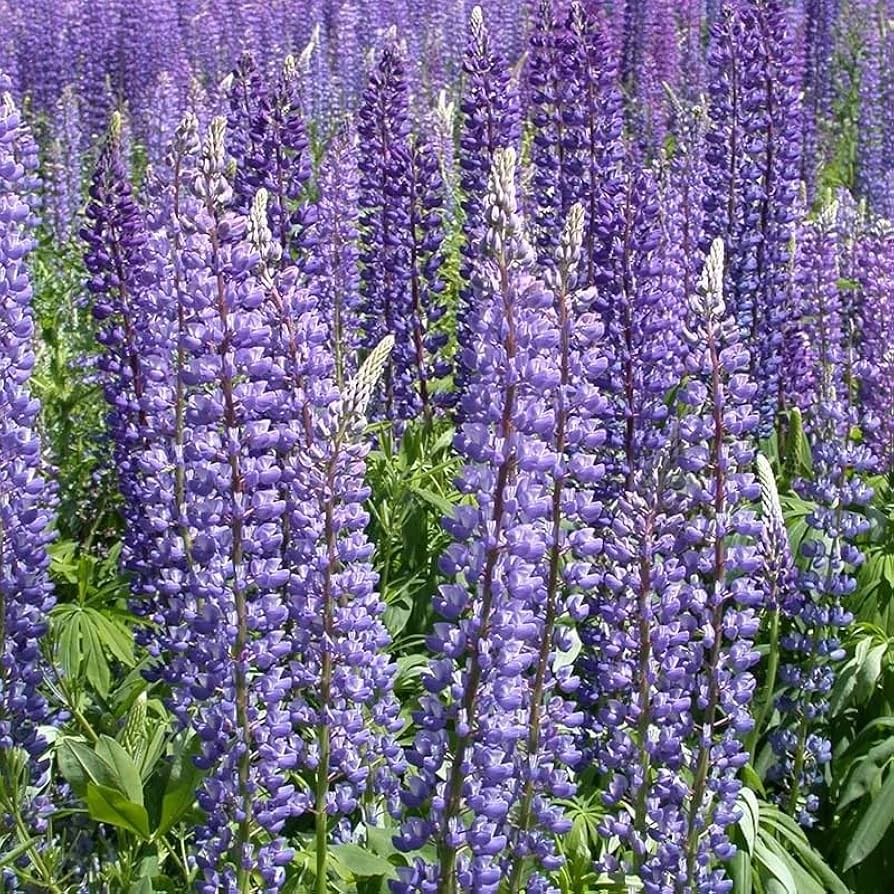Perennial Lupine Lupinus perennis seeds for colorful, low-maintenance garden borders and wildflower meadows
Couldn't load pickup availability
Description
Lupinus perennis Perennial Lupine Seeds
Characteristics and Uses of Lupinus perennis Plants
Lupinus perennis, commonly known as the Perennial Lupine, is a stunning flowering plant celebrated for its tall spikes of vibrant blue, purple, or white flowers that bloom in late spring to early summer. This perennial is not only visually striking but also plays a vital role in attracting pollinators such as bees and butterflies, making it an excellent addition to any garden. The foliage is composed of attractive, palmate leaves that provide a lush backdrop for the colorful blooms. As a non-GMO option, these seeds are perfect for gardeners who appreciate natural gardening practices and wish to cultivate a beautiful, wildlife-friendly environment.
Growing Conditions for Lupinus perennis Plants
- Soil Type: Prefers well-draining, sandy or loamy soil that is rich in organic matter.
- Sunlight: Thrives in full sun to partial shade, requiring at least 6 hours of direct sunlight daily.
- Temperature: Best suited for moderate climates, tolerating a range of temperatures but flourishing in cooler conditions.
Planting Tips for Lupinus perennis
- Seed Preparation: Soak seeds in water for 2hours before planting to enhance germination.
- Planting Depth: Sow seeds at a depth of about 1/inch in seed trays or directly in the garden.
- Spacing: Once seedlings are established, space plants 12-18 inches apart to allow for their natural growth.
Watering Instructions and Tips
- Initial Watering: Water thoroughly after planting to establish strong roots.
- Ongoing Care: Keep the soil moderately moist, especially during dry spells; avoid overwatering.
- Mulching: Apply mulch around the base to retain moisture and suppress weeds.
Growing Zones
Lupinus perennis is suitable for USDA zones 3-7 and can thrive in global zones with similar temperate conditions, making it a versatile choice for many gardeners.
Key Benefits & Uses
- Non-GMO seeds ensure a natural growing experience.
- Attracts a variety of pollinators, enhancing biodiversity in your garden.
- Provides excellent ground cover and helps prevent soil erosion.
Best Uses in the Garden & Landscape
- Ideal for wildflower gardens, adding color and attracting wildlife.
- Great for borders and as a focal point in mixed perennial beds.
- Can be used in naturalized areas to create a beautiful, low-maintenance garden.
Conclusion
Choosing Lupinus perennis seeds from bijaseeds means investing in a beautiful and beneficial plant that enhances your garden's aesthetic and ecological value. As a big, trusted name in the seed world, bijaseeds offers a wide range of high-quality, non-GMO varieties to gardeners everywhere.
FAQ
How do I grow Lupinus perennis from seeds?
To grow Lupinus perennis from seeds, soak the seeds in water for 2hours before planting. Sow them at a depth of 1/inch in well-draining soil and keep them warm and moist until germination.
When is the best time to plant Lupinus perennis seeds?
The best time to plant Lupinus perennis seeds is in the spring after the last frost date, or you can start them indoors in late winter for an earlier bloom.
Are Lupinus perennis plants difficult to grow?
Lupinus perennis plants are relatively easy to grow, making them suitable for gardeners of all levels. With proper care regarding sunlight, soil, and watering, these plants can thrive and provide a stunning display of flowers.



